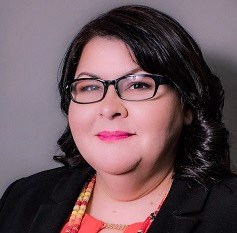A drug and gang forum spearheaded by Jacob Pete, a Little Pine First Nation elder, was held Nov. 22 and 23 at the Dekker Centre in North Battleford. The forum’s title is Reclaiming Miyopimatisiwin: What gets in the way? (Miyopimatisiwin translates as “the good life.”) Pete says there is gang and drug activity in North Battleford and in the surrounding area, and believes such problems can begin to be solved with the help of Indigenous traditions, spirituality and customs.
A recent drug and gang forum brought in two women with roots in Keeseekoose First Nation, near Kamsack, to offer their expertise on topics relevant to First Nation communities.
Mary Culbertson, Treaty Commissioner of Saskatchewan, gave opening remarks. Culbertson spent some time living in the Battlefords, and previously worked for Sunchild Law. Culbertson said Keeseekoose First Nation has experienced a rise in HIV rates and opioids.
For Culbertson, parenting is one explanation for problems facing First Nation communities.
Culbertson said a previous attitude (and one she said she was raised with) was “you make your children cry before they make you cry.”
Culbertson said she’s noticed a difference “in our last couple generations.” If a child is wrong, Culbertson said, some parents respond with “how dare you, my baby wouldn’t do that. She’s not like that.”
Many issues, according to Culbertson, stem from lost parenting skills, a legacy of residential schools.
“When you have one generation after another who […] don’t have the parents [and grandparents] to teach them, then what do we have? We have generations that are lost, and they seek refuge, in drugs, in other youth, people who’ll tell them they’ll be part of the family,” Culbertson said.
“These young people have been seeking out their own families, and gangs have created those systems of families for them.”
Culbertson said finding solutions “begins with talking about the truth, or else things could get worse,” while emphasizing the importance of understanding and cooperation.
Cpl. Karen Pelletier, who has also lived on Keeseekoose, spoke afterwards, presenting on drugs ranging from alcohol to fentanyl. Pelletier said alcohol remains “the worst drug” among First Nation people. However, according to Pelletier, 35 per cent of Indigenous people don’t drink alcohol, and there is a push among some young people to not do drugs.
Pelletier said some presume Indigenous culture is the reason why there are problems. Pelletier argued many problems “stem from a welfare system.”
“It has caused a breakdown of us being responsible for who we are,” Pelletier said, adding problems arise from “generation after generation saying ‘I can get free money.’”
Pelletier said “it’s something we should not have anything to do with.”
“We sustained so long, even right now, because of who we are as a people,” Pelletier said. “The government wanted to get rid of us, well, we’re still here and we’re not going anywhere.”
A woman in the audience challenged the point regarding the welfare system, saying such a system has “very little to do with” kids who are illiterate, and don’t finish high school, and who are lost ‘to the big dealers.’”




